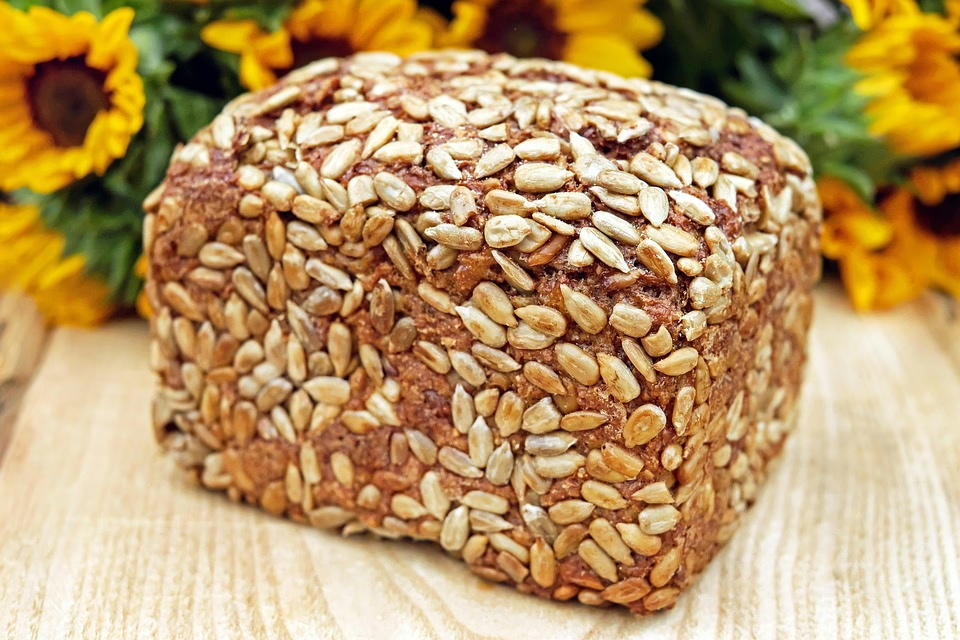The Ultimate Pregnancy Food Guide: What to Eat & What to Avoid
Pregnancy is a transformative journey, a period of incredible growth and change for both mother and child. Nourishment plays a crucial role during these nine months, acting as the building blocks for a healthy baby and maintaining the well-being of the expectant mother. This guide aims to provide comprehensive information about the optimal diet during pregnancy, outlining essential nutrients, food sources, and crucial foods to avoid to ensure a safe and healthy pregnancy journey.
I. Why is Nutrition So Important During Pregnancy?
The foods you consume during pregnancy directly impact the development of your baby. Think of it as laying the foundation for their future health. Proper nutrition supports:[mfn 1]
- Fetal Growth and Development: Nutrients like folate, iron, calcium, and protein are vital for the development of the baby’s organs, bones, brain, and immune system.
- Healthy Birth Weight: Adequate nutrition helps prevent low birth weight, which can lead to various health complications for the baby.
- Reduced Risk of Birth Defects: Sufficient intake of certain nutrients, particularly folate, significantly lowers the risk of neural tube defects.
- Maternal Health: Pregnancy places increased demands on the mother’s body. Good nutrition helps maintain her energy levels, prevent deficiencies, and reduce the risk of pregnancy-related complications like gestational diabetes and pre-eclampsia.
- Long-Term Health Outcomes: Emerging research suggests that maternal nutrition can influence the child’s long-term health, including their risk of developing chronic diseases later in life.
II. Key Nutrients for a Healthy Pregnancy:
A balanced diet during pregnancy is not just about eating more; it’s about eating the right things. Here’s a breakdown of key nutrients and their importance:[mfn 2]
-
Folate (Vitamin B9):
- Importance: Crucial for cell division and DNA synthesis, especially during the early stages of pregnancy. Essential for preventing neural tube defects like spina bifida.
- Recommended Daily Intake: 600 mcg DFE (Dietary Folate Equivalents).
- Food Sources: Leafy green vegetables (spinach, kale, romaine lettuce), legumes (beans, lentils), asparagus, broccoli, citrus fruits, fortified cereals, and prenatal vitamins.
-
Iron:
- Importance: Essential for producing hemoglobin, the protein in red blood cells that carries oxygen throughout the body. Pregnancy increases blood volume, requiring more iron to support both mother and baby. Iron deficiency can lead to anemia, fatigue, and increased risk of preterm labor.
- Recommended Daily Intake: 27 mg.
- Food Sources: Lean red meat, poultry, fish, beans, lentils, spinach, fortified cereals, and dried fruits. Combining iron-rich foods with vitamin C (e.g., orange juice with a spinach salad) enhances iron absorption.
-
Calcium:
- Importance: Vital for building strong bones and teeth in the baby. If the mother doesn’t consume enough calcium, the baby will draw it from her bones, potentially leading to osteoporosis later in life.
- Recommended Daily Intake: 1000 mg.
- Food Sources: Dairy products (milk, yogurt, cheese), fortified plant-based milks (almond, soy, oat), leafy green vegetables (kale, collard greens), tofu, canned salmon with bones.
-
Vitamin D:
- Importance: Essential for calcium absorption and bone health. Also plays a role in immune function and cell growth. Vitamin D deficiency is common and can increase the risk of pre-eclampsia and gestational diabetes.
- Recommended Daily Intake: 600 IU (International Units).
- Food Sources: Fortified milk and cereals, fatty fish (salmon, tuna, mackerel), egg yolks, and sunlight exposure (though sunlight alone is often insufficient). Supplementation is often recommended, especially during winter months.
-
Protein:
- Importance: The building block of all cells. Essential for the growth and development of the baby’s tissues and organs. Also helps maintain the mother’s muscle mass and energy levels.
- Recommended Daily Intake: 71 grams.
- Food Sources: Lean meat, poultry, fish, eggs, beans, lentils, tofu, Greek yogurt, nuts, and seeds.
-
Omega-3 Fatty Acids (DHA & EPA):
- Importance: Crucial for brain and eye development in the baby. May also help reduce the risk of preterm labor and postpartum depression.
- Recommended Daily Intake: At least 200-300 mg of DHA.
- Food Sources: Fatty fish (salmon, tuna, mackerel, sardines – choose low-mercury options), flaxseeds, chia seeds, walnuts, and fortified eggs. Algae-based DHA supplements are a good option for vegetarians and vegans.
-
Choline:
- Importance: Essential for brain development and function in the baby. Plays a role in preventing neural tube defects and improving cognitive function.
- Recommended Daily Intake: 450 mg.
- Food Sources: Eggs (especially the yolk), beef, chicken, fish, beans, broccoli, and nuts.
-
Iodine:
- Importance: Essential for thyroid hormone production, which is crucial for brain and nervous system development in the baby.
- Recommended Daily Intake: 220 mcg.
- Food Sources: Iodized salt, dairy products, seafood, and seaweed.
-
Vitamin C:
- Importance: An antioxidant that helps protect cells from damage and boosts the immune system. Also aids in iron absorption.
- Recommended Daily Intake: 85 mg.
- Food Sources: Citrus fruits, berries, tomatoes, bell peppers, broccoli, and spinach.
-
Fiber:
- Importance: Helps regulate bowel movements and prevent constipation, a common pregnancy complaint. Also helps control blood sugar levels and promotes satiety.
- Recommended Daily Intake: 25-30 grams.
- Food Sources: Whole grains (oats, brown rice, quinoa), fruits, vegetables, legumes, and nuts.
III. Building a Healthy Pregnancy Plate:
Visualizing your plate can help ensure you’re getting a balanced intake of essential nutrients. Aim for this general guideline at each meal:[mfn 3]
- Half the plate: Non-starchy vegetables (leafy greens, broccoli, carrots, peppers, etc.).
- One-quarter of the plate: Lean protein (chicken, fish, beans, tofu, etc.).
- One-quarter of the plate: Whole grains or starchy vegetables (brown rice, quinoa, sweet potato, whole-wheat bread, etc.).
- Include a source of healthy fats: Avocado, nuts, seeds, olive oil.
- Add a serving of fruit: Berries, apple, banana, etc.
- Dairy or fortified alternative: Yogurt, milk, cheese, almond milk.
Sample Meal Ideas:
- Breakfast: Oatmeal with berries and nuts, Greek yogurt with fruit and granola, whole-wheat toast with avocado and egg.
- Lunch: Salad with grilled chicken or chickpeas, whole-grain sandwich with lean turkey and vegetables, lentil soup with whole-wheat bread.
- Dinner: Baked salmon with roasted vegetables and quinoa, chicken stir-fry with brown rice, vegetable curry with lentils and brown rice.
- Snacks: Fruits, vegetables with hummus, nuts, yogurt, hard-boiled eggs.
IV. Foods to Avoid or Limit During Pregnancy:
While focusing on nutrient-rich foods is crucial, it’s equally important to be aware of foods that pose potential risks during pregnancy. These foods can harbor harmful bacteria or contain substances that can negatively impact the developing baby.[mfn 4]
-
Raw or Undercooked Meat, Poultry, and Seafood:
- Risks: Can contain harmful bacteria like Listeria, Salmonella, and Toxoplasma gondii, which can cause food poisoning, birth defects, and miscarriage.
- Recommendations: Cook all meat, poultry, and seafood to safe internal temperatures. Avoid raw or undercooked sushi, sashimi, ceviche, and deli meats unless heated until steaming hot.
-
Unpasteurized Dairy Products and Juices:
- Risks: Can contain harmful bacteria like Listeria and E. coli.
- Recommendations: Choose pasteurized dairy products (milk, cheese, yogurt) and juices. Avoid raw milk and soft cheeses made with unpasteurized milk (e.g., Brie, Camembert, feta, blue cheese).
-
Certain Types of Fish (High in Mercury):
- Risks: High levels of mercury can harm the developing brain and nervous system of the baby.
- Recommendations: Avoid or limit consumption of high-mercury fish such as shark, swordfish, king mackerel, and tilefish. Safer options include salmon, tuna (canned light tuna is generally lower in mercury than albacore tuna), shrimp, cod, and catfish. The FDA recommends consuming 8-12 ounces (2-3 servings) of low-mercury fish per week.
-
Raw Eggs and Foods Containing Raw Eggs:
- Risks: Can contain Salmonella bacteria.
- Recommendations: Avoid raw eggs and foods made with raw eggs, such as homemade mayonnaise, Caesar salad dressing, and hollandaise sauce. Ensure eggs are cooked thoroughly until the yolk and white are firm.
-
Deli Meats and Hot Dogs (Unless Heated):
- Risks: Can harbor Listeria bacteria.
- Recommendations: Avoid deli meats and hot dogs unless heated until steaming hot to kill any potential bacteria.
-
Alcohol:
- Risks: Alcohol can cause fetal alcohol spectrum disorders (FASDs), which can lead to a range of physical, behavioral, and intellectual disabilities.
- Recommendations: There is no safe amount of alcohol consumption during pregnancy. It is best to avoid alcohol completely.
-
Excessive Caffeine:
- Risks: High caffeine intake may be linked to an increased risk of miscarriage and low birth weight.
- Recommendations: Limit caffeine intake to no more than 200 mg per day (about one 12-ounce cup of coffee). Be mindful of caffeine sources such as tea, soda, and chocolate.
-
Unwashed Fruits and Vegetables:
- Risks: Can contain bacteria, parasites, and pesticides.
- Recommendations: Wash all fruits and vegetables thoroughly under running water before consumption. Consider using a vegetable brush to scrub firm produce.
-
Processed Foods High in Sugar, Salt, and Unhealthy Fats:
- Risks: Provide little nutritional value and can contribute to weight gain, gestational diabetes, and other health complications.
- Recommendations: Limit consumption of processed foods such as sugary drinks, fast food, and packaged snacks. Focus on whole, unprocessed foods instead.
-
Artificial Sweeteners (Some Types):
- Risks: While many artificial sweeteners are considered safe in moderation during pregnancy, some, like saccharin, may cross the placenta and should be used with caution.
- Recommendations: Consult with your doctor or a registered dietitian about the safety of specific artificial sweeteners during pregnancy. Stevia and sucralose are generally considered safe options.
-
Herbal Teas (Certain Types):
- Risks: Some herbal teas contain ingredients that may be harmful during pregnancy.
- Recommendations: Consult with your doctor or a registered dietitian before consuming herbal teas during pregnancy. Avoid teas containing herbs like black cohosh, blue cohosh, pennyroyal, and mugwort. Ginger and peppermint tea are generally considered safe in moderation.
V. Addressing Common Pregnancy Discomforts Through Diet:
Many women experience common discomforts during pregnancy, such as nausea, heartburn, and constipation. Dietary adjustments can often help alleviate these symptoms.[mfn 5]
-
Nausea and Morning Sickness:
- Strategies: Eat small, frequent meals throughout the day. Avoid strong smells and greasy or spicy foods. Try ginger (ginger tea, ginger candies, or ginger ale). Eat crackers or toast before getting out of bed in the morning.
- Foods to Include: Bland foods like crackers, toast, rice, and bananas. Ginger-containing foods and drinks.
-
Heartburn:
- Strategies: Eat smaller meals. Avoid lying down immediately after eating. Avoid trigger foods such as spicy, fried, or fatty foods, citrus fruits, chocolate, and caffeine. Elevate the head of your bed.
- Foods to Include: Low-acidic foods like oatmeal, bananas, and melon.
-
Constipation:
- Strategies: Increase fiber intake. Drink plenty of water. Engage in regular physical activity.
- Foods to Include: Whole grains, fruits, vegetables, legumes, and prunes.
-
Leg Cramps:
- Strategies: Ensure adequate hydration. Consider increasing calcium and magnesium intake. Gentle stretching can help.
- Foods to Include: Dairy products, leafy green vegetables, nuts, and seeds.
VI. Prenatal Vitamins and Supplements:
While a healthy diet is the foundation of good nutrition during pregnancy, prenatal vitamins and supplements can help fill any nutritional gaps and ensure that both mother and baby are getting all the necessary nutrients.[mfn 6]
- Folate: As previously mentioned, crucial for preventing neural tube defects. Most prenatal vitamins contain 400-800 mcg of folic acid.
- Iron: Helps prevent anemia and support fetal growth. Many prenatal vitamins contain 27 mg of iron.
- Calcium and Vitamin D: Essential for bone health. Prenatal vitamins may contain calcium and vitamin D, but supplementation may be necessary, especially if you don’t consume dairy products or get enough sunlight.
- Omega-3 Fatty Acids (DHA): Important for brain and eye development. Consider taking a separate DHA supplement if your prenatal vitamin doesn’t contain enough.
- Iodine: Essential for thyroid function. Ensure your prenatal vitamin contains iodine.
- Choline: While not always included in prenatal vitamins, it is increasingly recognized as important for fetal brain development. Consider a separate choline supplement.
Important Note: Always consult with your doctor or a registered dietitian before taking any prenatal vitamins or supplements. They can help you determine the appropriate dosage and ensure that the supplements are safe for you and your baby. Never exceed the recommended dosage of any vitamin or mineral.
VII. Hydration During Pregnancy:
Staying adequately hydrated is crucial during pregnancy. Water helps support the increased blood volume, aids in nutrient transport, and prevents constipation. Aim to drink at least 8-12 glasses (64-96 ounces) of water per day. Other hydrating beverages include herbal teas, fruit-infused water, and clear broths. Avoid sugary drinks and excessive caffeine, as they can be dehydrating.
VIII. Special Dietary Considerations:
Some women have specific dietary needs due to pre-existing conditions or lifestyle choices. It’s important to address these with a healthcare professional or registered dietitian to ensure a healthy pregnancy.[mfn 7]
-
Vegetarian or Vegan Pregnancy: It’s absolutely possible to have a healthy vegetarian or vegan pregnancy. However, it’s crucial to pay close attention to getting enough protein, iron, calcium, vitamin D, vitamin B12, omega-3 fatty acids, and iodine. Consider supplementation and consult with a registered dietitian for personalized guidance.
-
Gestational Diabetes: Gestational diabetes is a type of diabetes that develops during pregnancy. It requires careful blood sugar monitoring and dietary modifications. Focus on complex carbohydrates, lean protein, and healthy fats. Limit sugary drinks and processed foods. Work with a registered dietitian to develop a meal plan that meets your individual needs.
-
Pre-existing Conditions (e.g., Food Allergies, Celiac Disease): If you have any pre-existing medical conditions, it’s essential to work with your healthcare provider to manage your diet during pregnancy. Ensure you are meeting your nutritional needs while avoiding foods that trigger your condition.
-
Multiple Pregnancies: Women carrying twins or multiples have higher nutritional needs than those carrying a single baby. They may require increased intake of calories, protein, iron, calcium, and other nutrients. Consult with your doctor or a registered dietitian for personalized guidance.
IX. Navigating Food Cravings and Aversions:
Food cravings and aversions are common during pregnancy. While indulging in cravings occasionally is fine, it’s important to prioritize nutrient-rich foods and avoid overdoing it on unhealthy options. If you have strong aversions, try to find alternative sources of the nutrients you are missing. Talk to your doctor if you are concerned about your cravings or aversions.
X. Seeking Professional Guidance:
This guide provides general information about nutrition during pregnancy. However, every woman is unique, and individual needs may vary. It’s always best to consult with your doctor or a registered dietitian for personalized advice and guidance. They can help you develop a meal plan that meets your specific needs and address any concerns you may have.
Conclusion:
Nutrition is a cornerstone of a healthy pregnancy. By focusing on nutrient-rich foods, avoiding risky foods, and addressing any individual dietary needs, you can support the healthy growth and development of your baby and maintain your own well-being throughout this remarkable journey. Remember to listen to your body, stay hydrated, and seek professional guidance when needed. Congratulations on your pregnancy!
[mfn 1]
Institute of Medicine. (2009). Weight Gain During Pregnancy: Reexamining the Guidelines. National Academies Press.


























Add Comment